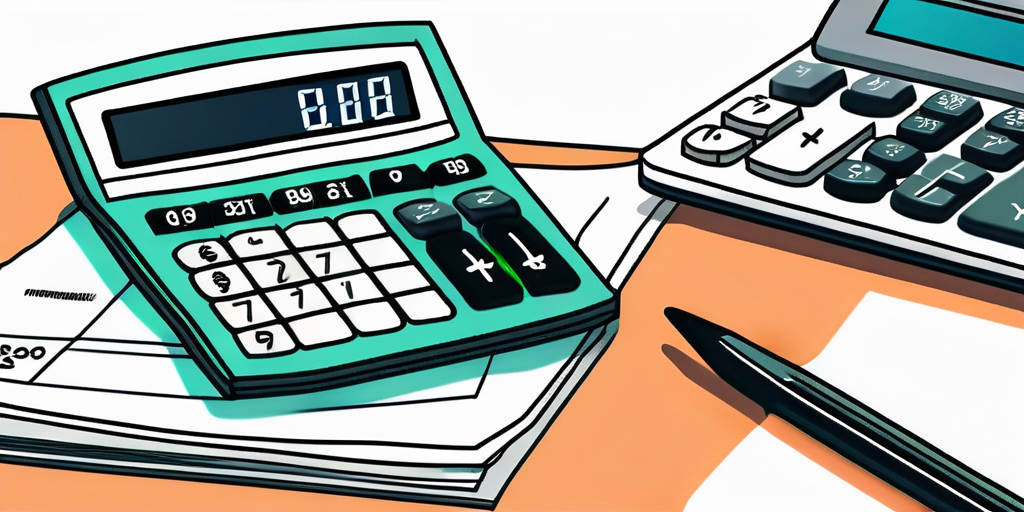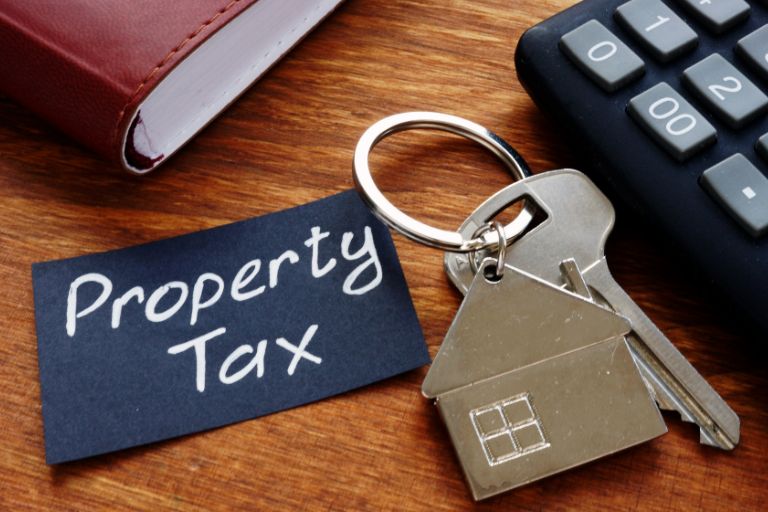Welcome, dear reader, to the rollercoaster ride of property tax in the realm of business tax services! Yes, it’s as thrilling as it sounds. We’re about to embark on a journey through the labyrinth of tax codes, exemptions, deductions, and more. So, buckle up, grab your calculator, and let’s dive in!
Property tax, a term that can make even the bravest of entrepreneurs quiver in their boots, is a fundamental part of business tax services. It’s like the spinach in your salad, you may not like it, but it’s good for you (or, at least, it’s good for the government’s wallet). But fear not, by the end of this article, you’ll be a property tax guru, ready to face the tax season with a smile.
What is Property Tax?
Property tax, also known as the ‘real estate tax’, is like that distant relative who shows up uninvited once a year. It’s an annual financial obligation imposed on property owners based on the value of their property. It’s like a yearly subscription to the ‘Owning Property Club’ that you can’t unsubscribe from.

and the assessed value of your property. It’s like a game of bingo, but instead of shouting “Bingo!” you shout “Why is my property so expensive?!”
The Tax Rate
The tax rate, also known as the millage rate, is like the secret ingredient in your grandma’s famous apple pie. It varies from place to place and can be influenced by various factors such as local government budgets and public voting. It’s like a popularity contest, but with less drama and more math.
Each local government sets its own millage rate. It’s like a potluck dinner, where each participant brings their own dish, but in this case, they’re bringing tax rates. And let’s be honest, no one likes the person who brings a high tax rate to the party.
The Assessed Value
The assessed value is the dollar value assigned to a property for the purpose of measuring applicable taxes. It’s like putting a price tag on your house, but instead of selling it, you’re paying taxes on it. Fun, right?
Assessors, the folks responsible for determining the assessed value, are like the judges on a reality show. They evaluate your property based on various factors like size, location, and improvements, and then give it a score. But instead of getting a golden buzzer, you get a tax bill.
Types of Property Tax
Just when you thought property tax couldn’t get any more exciting, it does! There are different types of property taxes, each with its own set of rules and regulations. It’s like a box of chocolates, you never know what you’re going to get.
Let’s take a look at the most common types: real property tax, personal property tax, and special assessments. It’s like a tax buffet, and you’re about to get a taste of each dish.
Real Property Tax
Real property tax is the tax on real estate, which includes land and buildings. It’s like the king of the property tax kingdom, reigning supreme over all other types. It’s the tax you’re probably most familiar with, unless you’re living in a treehouse (in which case, kudos to you!).
The amount of real property tax you owe is based on the assessed value of your property and the local tax rate. It’s like a math equation, but instead of solving for x, you’re solving for ‘how much money do I owe the government this year?’
Personal Property Tax
Personal property tax is the tax on movable property, like vehicles, boats, and airplanes. It’s like the mischievous younger sibling of real property tax, always on the move and hard to pin down.
The amount of personal property tax you owe is based on the value of your movable property. It’s like a treasure hunt, but instead of finding treasure, you’re finding tax obligations.
Special Assessments
Special assessments are taxes for specific public projects like road construction or sewer improvements. They’re like the surprise guests at a party, showing up unexpectedly and adding to the overall cost.
Special assessments are usually a one-time tax, but they can be spread out over a period of time. It’s like paying for a gym membership, but instead of getting fit, you’re getting a new sewer system.
How to Calculate Property Tax
Calculating property tax is like solving a puzzle. It requires patience, precision, and a good calculator. But don’t worry, we’re here to guide you through it, step by step. It’s like a dance lesson, but with less twirling and more number crunching.
The formula for calculating property tax is: Assessed Value x Tax Rate = Property Tax. It’s like a secret code, but instead of unlocking a treasure chest, it unlocks your tax bill.
Step 1: Determine the Assessed Value
The first step in calculating your property tax is determining the assessed value of your property. It’s like getting your house appraised, but instead of selling it, you’re figuring out how much tax you owe on it.
To determine the assessed value, you’ll need to know the market value of your property and the assessment ratio in your area. It’s like a scavenger hunt, but instead of finding clues, you’re finding tax information.
Step 2: Determine the Tax Rate
The next step is determining the tax rate in your area. It’s like checking the weather forecast, but instead of finding out if it’s going to rain, you’re finding out how much tax you’re going to pay.
The tax rate is usually expressed as a percentage or a millage rate. It’s like a secret language, but instead of saying ‘I love you’, it’s saying ‘you owe this much in taxes’.
Step 3: Calculate the Property Tax
The final step is calculating the property tax. It’s like the grand finale of a fireworks show, where all the pieces come together to create a spectacular display. Except in this case, the display is your tax bill.
To calculate the property tax, you multiply the assessed value by the tax rate. It’s like baking a cake, but instead of mixing flour and eggs, you’re mixing numbers and percentages.
Property Tax Exemptions and Deductions
Just when you thought we were done, we have a surprise for you: property tax exemptions and deductions! They’re like the cherry on top of the property tax sundae, providing sweet relief from your tax obligations.
Exemptions and deductions can reduce the amount of property tax you owe. It’s like a sale at your favorite store, but instead of saving money on clothes, you’re saving money on taxes.
Homestead Exemption
The homestead exemption is a tax break for homeowners. It’s like a VIP pass, giving you special privileges and benefits. In this case, the benefit is a reduction in your property tax.
The homestead exemption reduces the taxable value of your home, which in turn reduces your property tax. It’s like a magic trick, but instead of pulling a rabbit out of a hat, you’re pulling money out of your tax bill.
Senior Citizen Exemption
The senior citizen exemption is a tax break for individuals who are 65 years or older. It’s like a senior discount, but instead of saving money on coffee, you’re saving money on taxes.
The senior citizen exemption reduces the taxable value of your property, which in turn reduces your property tax. It’s like a fountain of youth, but instead of making you younger, it’s making your tax bill smaller.
Conclusion
And there you have it, folks! You’ve survived the thrilling rollercoaster ride of property tax in the realm of business tax services. You’ve navigated the labyrinth of tax codes, exemptions, deductions, and more. You’re now a property tax guru, ready to face the tax season with a smile.
Remember, property tax may seem daunting, but with the right knowledge and a good sense of humor, it can be a manageable part of your business operations. So, keep your calculator close, your tax codes closer, and your sense of humor closest of all. Happy taxing!


